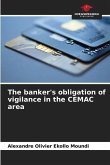A study of the effectiveness of the legal regime of the banker's obligation to know his customers in the fight against money laundering shows that it derives its existence from a number of sources. Some are non-mandatory and come from the "soft law" instruments of the para-governmental professional organisations for the fight against money laundering and the financing of terrorism and proliferation, such as the FATF recommendations and the Basel declaration. KYC standards are currently being disseminated around the world in the hope that they will serve as a benchmark for supervisors to develop national practices and for banks to design their own programmes on sound KYC procedures. Thus, the KYC requirement is becoming a mandatory source, i.e. a "hard law" consisting mainly of international conventions, laws, EU regulations and directives. Its implementation follows from the banker's performance to identify and verify the real identity of the customer in a constant and permanent manner.
Bitte wählen Sie Ihr Anliegen aus.
Rechnungen
Retourenschein anfordern
Bestellstatus
Storno








